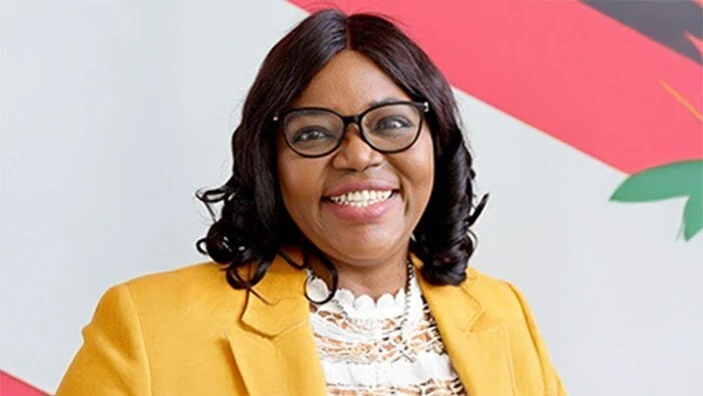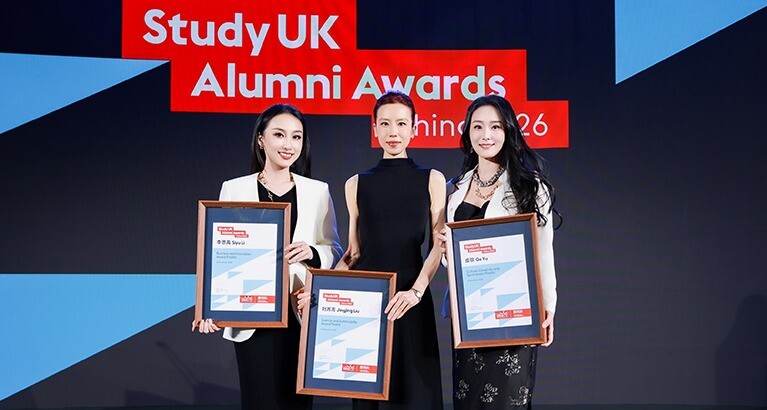Challenging leaders for many years

Olajumoke Jummy Okoya has been, as she puts it “banging the drum for diversity” for over 20 years. With multi-sector experience, she holds a PhD in Human Resources and an MSc in positive psychology and applied coaching.
A consultant on equality, diversity, and inclusion (EDI) at Cambridge Judge Business School, a post she has held since May 2020. She is also an Associate Professor of Leadership and Dean of the Office for Institutional Equity at the University of East London and Associate Fellow at Oxford University Saïd Business School.
As an Associate Professor of Leadership and organisation development consultant, she draws on her own background in her teaching. She is delighted by the increasing awareness of the importance of EDI amongst her students.
“Young people these days know their rights, they come in with expectations and knowledge. And they are prepared to challenge leaders to deliver.”
7 EDI insights from Dr Jummy
1
Know your own values
Dr Jummy’s vision is to awaken the social conscience of each new MBA student and challenge them to see themselves as future leaders who embrace the principles of inclusive leadership and promote conscious inclusion.
“Our individual values drive how we show up as leaders, so I ask the students at my induction courses to reflect on their own individual values. We use the Values in Action Character Strengths cards exercise to allow them to assess those values. And then we discuss how their individual values can be built on to facilitate inclusive leadership and promote a sense of belonging for others.”
Alongside are case studies of organisations with committed EDI policies and successful EDI initiatives that are operating profitably.
“MBA students understand the business case for inclusivity. We further solidify their knowledge by examining individual corporate strategies, such as inclusive recruitment, retention, and promotion practices.”
2
Incorporate your past experience
Dr Jummy asks new MBA students to rank the organisations they have previously worked for on a scale of 1 to 5 in terms of inclusivity.
“That gives everyone the opportunity to talk about employment issues around gender, ethnicity, sexuality, age in their own personal context, whether that has been good or bad.
“I make the point that the level of commitment of organisations to EDI generally predicts whether the outcome is successful. And we look at how it can be integrated into business strategy.”
3
Lean into diversity
Dr Jummy points out that the MBA student cohort at Cambridge is highly diverse, which leads to interesting discussions and differences of perspective. She finds students from the US are generally more upfront about issues around ethnicity and social status, while European students may focus more on regulations around gender and disability.
“That has much to do with government legislation and how far it is felt by the workforce. Students from South-east Asia can be more impassive, as cultural legislation often permeates employment legislation. As a result, there tends to be greater acceptance of the impact of cultural values on their careers.”
And while Dr Jummy finds her students equally interested regardless of their gender, the passion invariably comes from the women, particularly when it comes to issues around flexible working and reinduction into the workplace.
“I offer a series of tools and several frameworks and teach that every strand of HR has an EDI element, whether it be recruitment, promotion, pay or retention. The women often have more to say when it comes to their own experience! They are the first to recognise the valuable role issues like flexible working, family friendly policies can play in staff retention.”
4
EDI matters – even in a startup situation
MBA students who have previously worked in large global corporations will usually be familiar with EDI programmes. Dr Jummy’s message is whatever the scale of your company, and wherever you are in the world, EDI is vital.
“If you are in a big company, managing a small team, you should always ask yourself which groups are not represented in my team from an EDI perspective. And if you are a startup with a team of just 2, 3 or 4 at the outset, then you need to be baking diversity into your growth strategy by building a diverse team.
“Be wary, above all, of unintended consequence when you start out. Being small is not an excuse to ignore EDI.”
5
Good leaders embed EDI into strategy
Dr Jummy is clear that the latest generation of MBA students is more aware of issues of social justice.
“The challenge today is to embed issues of equality, diversity and inclusion into leadership, rather than seeing EDI as a separate strand.
I make the business case for delivering EDI as a strategic imperative and share with the MBA students how their own values can help them facilitate inclusive leadership. Taking ownership to promote inclusivity is an important step for senior leaders.”
And if this sounds rather grand, Dr Jummy is also happy to provide an inclusive recruitment cheat sheet for MBA students when they return to the workplace.
“I urge them to use diverse job boards and share their opportunities on a wide range of platforms to attract a diverse pool. Following the principles of inclusive recruitment and developing a retention strategy is in an organisation’s interests, big or small.”
6
Go beyond diversity, embrace inclusion
In Dr Jummy’s experience, many employers still engage with EDI from a compliance standpoint rather than an ethical and mission critical element of their business.
“Ethnicity is seen as volatile and sensitive. Disability is often viewed from a legislative perspective rather than a positive one. On gender, employers may understand what is needed but there is still a significant gender inequality pay gap in many western countries.”
Employers who reap the full benefits of EDI are those who go beyond merely representing different groups and proactively foster an environment where every employee feels a sense of belonging and inclusion.
There is much to be done. Her message:
“As EDI leaders, it is our responsibility to carry the torch and challenge inequities wherever they are found, by reviewing our policies and practices to ensure they foster an inclusive culture.”
7
Become a leader who fosters inclusivity
Dr Jummy is enthusiastic about the potential of Cambridge MBA students, who will be the team leaders of tomorrow.
“Our commitment to equity is reflected in how we engage with others. My induction classes provide the right environment for healthy challenges and provocations, equipping MBA students with the knowledge and confidence to be positive disruptors and build a more inclusive society.”
Related articles
Student and alumni news
TechWomen 100 awards for 2 Cambridge Judge alumna
Juliet Powell (MBA 2023) and Joey Deng (MPhil in Technology Policy 2020 ) were honoured by the TechWomen 100 Awards that recognise outstanding achievements of women in technology.
As the holiday season approaches, many applicants find it a useful moment to pause and reflect. Our MBA Admissions team shares some reminders to help guide you as you prepare your Cambridge MBA application.
Three Cambridge MBA graduates have been recognised at the prestigious Study UK Alumni Awards in China, showcasing the remarkable breadth of impact that Cambridge Judge Business School alumni are making across sustainability, digital innovation, and cross-cultural collaboration.





